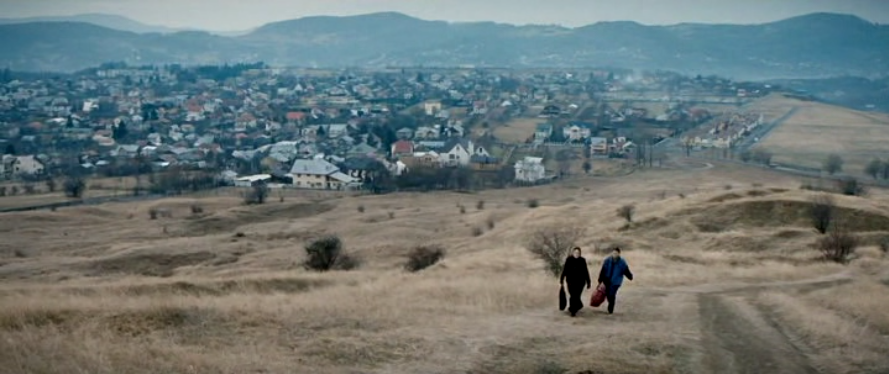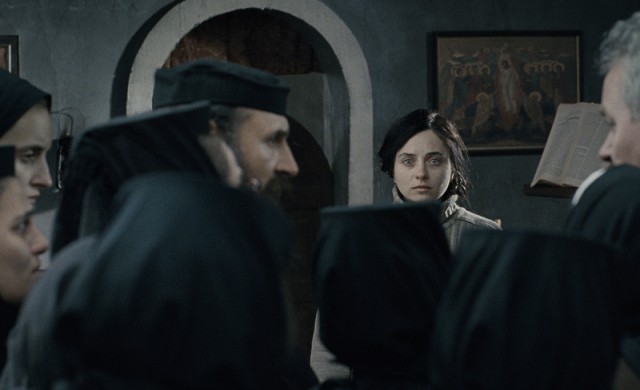 The two lead characters in Beyond the Hills grew up together in a Romanian orphanage where they were subjected to privation and worse – and where they became lifelong soulmates. They aged out of the orphanage, and, now 24, Alina has been working menial jobs in Germany while Voichita has joined a local monastery. The monastery is a small rural compound with a rigidly dogmatic provincial priest, a compassionate but simple mother superior and a dozen nuns who run the gamut from devout to superstitious.
The two lead characters in Beyond the Hills grew up together in a Romanian orphanage where they were subjected to privation and worse – and where they became lifelong soulmates. They aged out of the orphanage, and, now 24, Alina has been working menial jobs in Germany while Voichita has joined a local monastery. The monastery is a small rural compound with a rigidly dogmatic provincial priest, a compassionate but simple mother superior and a dozen nuns who run the gamut from devout to superstitious.
Alina craves Voichita’s companionship and viisits the monastery to convince Voichita to leave and join her in Germany. Voichita resists, and tries to get Alina to join the religious order. They’re both emotionally damaged from childhood experiences. There’s a strong bond between the two, and each is unable to let the other go. But each is strong willed and stubborn.
Then Alina suffers a psychotic breakdown. Now, since the worst place to treat such a condition would be a community of religious fanatics that is intentionally devoid of modernity, bad things happen. The priest and nuns are not monsters, but ill-equipped to avoid making a series of monstrous choices. We can only watch as the story moves unrelentingly to its awful conclusion. Sadly, the story is based on actual events at a Moldavian monastery a decade ago.
Beyond the Hills is compelling, in an oft excruciating and uncomfortable way. But those who commit to its 2 1/2 hours will see some remarkable film artistry from its real star – director Christian Mungiu. Munghiu’s thriller 4 Months, Three Weeks, 2 Days won the top prize at the Cannes Film Festival (and made #3 on my Best Movies of 2007). Beyond the Hills won Canne’s screenwriting award.
Munghiu fills Beyond the Hills will one dramatic shot after another. Early in the film, we see Voichita and Alina hike up a hillside in the Romanian countryside (see photo at top); when they reach the top, the camera swings behind them, and we see the monastery on the next rise. At the climax, the camera stays fixed on a crowd of characters (see photo below); the action and dialogue is between the two men in the foreground, but our attention is on the reactions of Voichita in the background. The length and patience of the shot allow our attention to settle on Voichita, and her eyes tell us what she has concluded. It’s an absolutely gripping moment.


1 thought on “Beyond the Hills: a bleak tragedy by a masterful filmmaker”